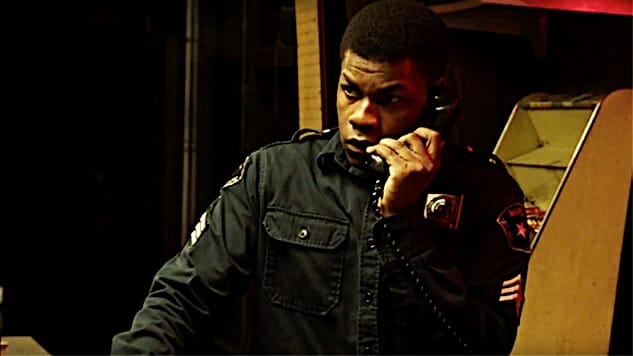Detroit

1. Detroit is a gripping historical drama and a courtroom thriller sandwiching a truly terrifying horror movie, and the movie is driven by such fury and outrage that it’s perhaps not surprising it has such a hard time focusing on which movie, in fact, it is. Focusing initially on the Detroit riots of 1967, the film depicts both the riot itself and the circumstances leading up to it with such care and attention to detail, along with genuine empathy, that it’s jarring to see it switch, suddenly, to the somewhat-untold story of the incident at the Algiers Motel in which Detroit police executed three African-Americans in a vain search for a non-existent sniper. The movie shifts from a sociological document in the vein of director Kathryn Bigelow’s and screenwriter Mark Boal’s Zero Dark Thirty and The Hurt Locker into a home invasion nightmare movie in which the police are Freddy and Jason and Michael Myers. The section is so powerful that it overwhelms everything that comes before and after it, to the film’s detriment. What we see in Detroit is so shocking and appalling that it is perhaps unreasonable to blame the film for being blinded in rage by it. But, alas, blinded it is.
2. At first, it looks like the film is going to be told through the eyes of Melvin Dismukes (John Boyega), an African-American security guard who tries to keep him and his loved ones safe as the riots burn all around them and military forces invade in response. But, curiously, Melvin quickly fades into the background as two key figures emerge. The first is Larry (Algee Smith), the lead singer of a doo-wop band called The Dramatics whose big audition is interrupted by the riots; the second is Krauss (Will Poulter), a disturbed, near-demented police officer who we first see shoot an unarmed looting suspect in the back and only gets worse from there. The two men, with others in tow (including Melvin, Larry’s brother and two more scared and less confident police officers), pulled along by their own specific sorts of magnetism, are inexorably drawn to the Algiers Motel. One man fires a starter pistol as a drunken prank, and the situation escalates into something untenable and monstrous.
3. Bigelow and Boal are clearly transfixed by the Algiers Motel incident, and with good reason: It’s a little-known substory to the Detroit riots that has never been told on screen before, and it’s inherently cinematic, with a group of scared people being trapped in a small room and terrorized by a psychopath. That the incident involves white cops and innocent African-Americans fearing for their lives—and that the cops are willing to plant evidence and, ultimately, take their chances with the courts when caught—gives the incident an obvious urgent relevance 50 years later, as well. But the section still can’t help but overwhelm everything else the film is trying to do. The sinister, almost demonic malevolence of Krauss (played with legitimate, vibrating menace by Poulter) turns the sequence into something out of a Blumhouse horror film, or maybe even the vicious cruelty of a Michael Haneke film: The movie essentially turns into Funny Games for about an hour, with Krauss and the other cops torturing everyone in that hotel emotionally, psychologically and, ultimately, physically. It is gripping, sad and infuriating. It also sends the movie flying off the rails, as it forcefully elbows out of the way anything else the movie wants to do. It makes everything else in the film seem weirdly anti-climactic.
-

-

-

-

-

-

-

-

-

-

-

-

-

-

-

-

-

-

-

-

-

-

-

-

-

-

-

-

-

-

-

-

-

-

-

-

-

-

-

-








































